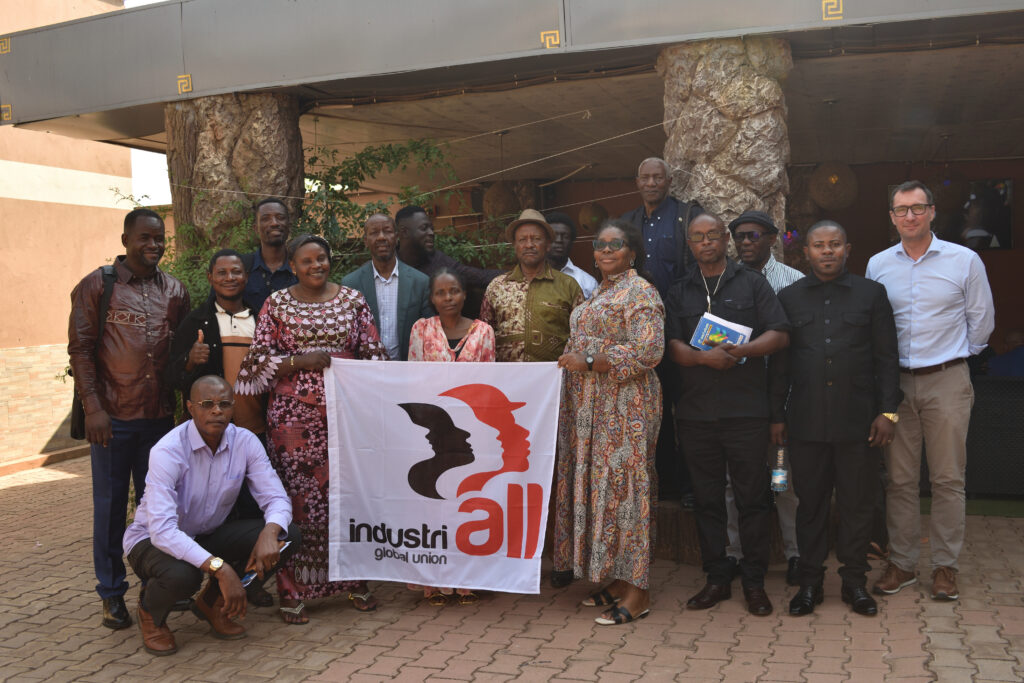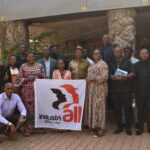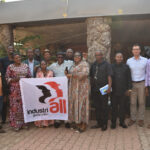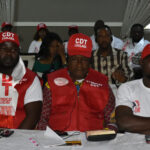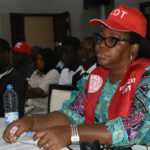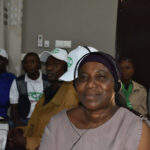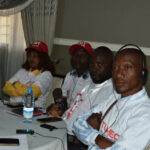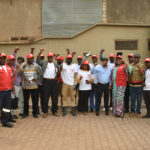15 October, 2025Trade unions and civil society organizations are joining forces to tame the Congolese paradox in the battery supply chain. The paradox is evident in the stark contradiction in the Democratic Republic of Congo (DRC), a nation endowed with vast natural resources such as cobalt, copper, coltan and diamonds, which account for much of the global supply needed for electronics and electric vehicles yet plagued by extreme poverty, armed conflict, corruption and human and workers’ rights violations.
The Congolese paradox has resulted in one of the world’s lowest GDP per capita figures despite mineral exports worth billions annually, with over 70 per cent of the population living below the poverty line and millions displaced by violence in the resource-rich eastern provinces.
More than 120 participants from trade unions affiliated to IndustriALL, artisanal small-scale mining co-operatives, non-governmental organizations and community groups gathered at a conference in Kolwezi on 9 October to plot a collaborative assault on human and workers’ rights violations in the DRC’s critical raw materials supply chain.
The DRC is a treasure trove of battery essentials: copper, cobalt, tantalum, lithium and more, all destined for electric vehicles. These are extracted by multinational corporations such as Glencore’s Kamoto Copper Company and Mutanda mine and China Molybdenum’s Tenke Fungurume Mining, alongside artisanal miners that produce 30 per cent of the country’s cobalt.
The conference urged the creation of a forum for engagement on these minerals, intensified trade-union organizing, the formalization of artisanal mining, sustained discussions with multinationals and tripartite dialogue with the government to align interests along the battery supply chain.
Spotlight fell on an IndustriALL study, “Exploring the DRC cobalt value chain: challenges, opportunities and stakeholder engagement,” presented by Theodore Kamwimbi of the Centre for Transformative Regulation of Work at the University of the Western Cape. It dissected mining operations and workers’ rights at Kamoto, Metalkor RTR, the Lualaba Copper Smelter and Sicomines. Subcontractors at Kamoto flouted labour laws, sparking strikes; bribery of inspectors has surfaced at the smelter; Sicomines unions have walked out over bargaining woes and Metalkor has conducted unfair dismissals. The report noted a dip in child labour but bemoaned weak enforcement of labour laws.
Antoine Kasongo, Fair Cobalt Alliance, country director said:
“More needs to be done to combat human rights violations and non-compliance with national and international standards for the benefit of the artisanal mining community.”
He called for awareness campaigns and training on health, safety, eradicating child labour and local industrialization.
Davidzo Muchawaya, labour-sector lead at the Initiative for Responsible Mining Assurance (IRMA), unpacked the IRMA standard’s nuts and bolts and the audit underway at Tenke Fungurume — the first by IRMA of a Chinese multinational.
“Supply chains span the globe these days,” reflected Constantin Grund, FES country director for the DRC, “but for the manual labourer at the beginning of the supply chain, nothing really changes, even though entire product lines could not be manufactured without them. We need fairness for everyone involved in the manufacturing of a product, especially those blue-collar workers who shed sweat and tears.”
Glen Mpufane, IndustriALL director for mining and diamonds concurred:
“Key players must form alliances over the critical raw materials supply chain to safeguard workers’ rights, hold multinationals to account and secure remedies for communities and workers when violations occur.”
